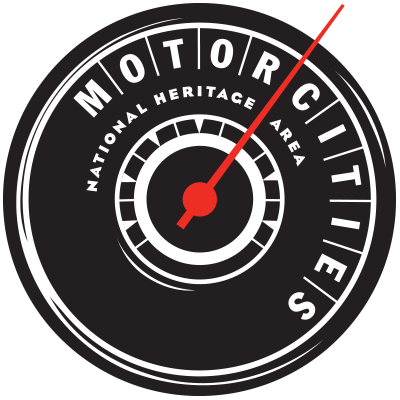By: Robert Tate
Photos courtesy of Robert Tate's collection
Posted: 03.01.2016
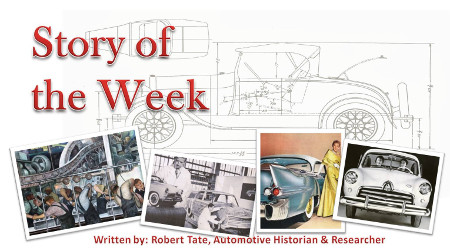
The development of the 1957 and 1958 Plymouth models by the Chrysler Corporation created a huge success and rise automotive sales for the company. It was a time when Chrysler hit record sales by introducing the “Forward look” cars which had set very high standards in styling.
The 1957 Plymouth models clearly indicated a wide-spread acceptance by the public and enjoyed by many in the motoring culture. The “Forward look” presented some new and unique design qualities. 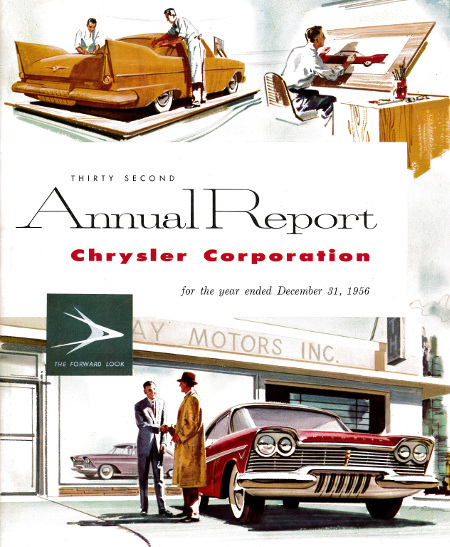
Among Chrysler’s major engineering innovations available in 1957 was the industry's first basic change in automobile suspension systems in nearly a quarter of century. The new Torsion-Aire suspension system was the result of many years of research, development and planning.
I have to say that the 1957-58 Chrysler products are a favorite among my special interest automobiles. The men who were involved with the process of developing and designing the 1957-58 Plymouth models were as follows: the late Virgil M. Exner, vice president and director of styling; Mr. Harry T. Bannister, chief of product development-styling; Mr. Clifford C. Voss, chief of exterior styling; Mr. Carl Reynolds, chief of interior design; and Mr. Robert E. Bingman, who was chief stylist of special projects.
On April 19, Chrysler Corporation’s 1957 cars made automotive history by scoring a clean sweep of every price and weight class in the 1957 “Mobilgas Economy Run.” The Torsion-Aire Ride was also mentioned by Motor Trend magazine as the automobile industry’s most significant advancement of the year. 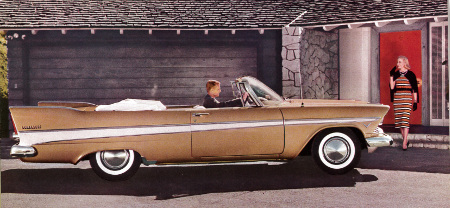
Chrysler management was also very happy because the 1957 Plymouth had replaced Buick for the No. 3 spot in automotive sales within the industry. In 1957, Ford was the No. 1 selling car in America followed by Chevrolet which was second and Plymouth which came in third that year in sales.
Chrysler had spent $300 million for design and development of its 1957 models. The 1957 Plymouth models offered automatic transmissions, power steering and power brakes. One of the most popular models that Plymouth manufactured for 1957 was the high-performance Plymouth Fury which was introduced to the public in January of 1957. A total of 7,438 Fury models were made for the buying public. It was also the most costly Plymouth model in the Plymouth line with an asking cost of $2,925. 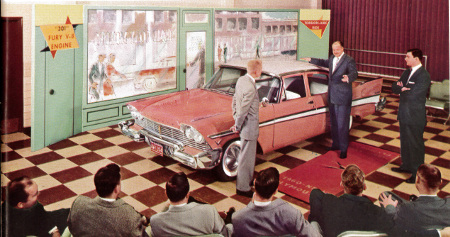
In January 1957, Plymouth had reached another milestone when the company reached 10 million vehicles produced. Part of its marketing campaign for that year stated that suddenly it was 1960 because Plymouth claimed to be three full years ahead of its competitors. The 1957 Plymouth vehicles were great looking styling models. The 1958 Plymouth models were upgraded from the 1957 designs that still looked great. The models offered the very distinctive Flight Sweep concept of styling. The high-flung fins, which were a major mark of Plymouth’s signature style, were still very popular among consumers and auto enthusiasts alike. From the popular sport coupes, sedans and suburbans, Plymouth at that time was writing its own great chapter for the Chrysler history books.
In 1958, Plymouth again offered the popular Fury model. The models offered a new lower grille design with simulated gold, anodized aluminum moldings that applied horizontally to match the gold bars of the upper grille. The new design scored high marks with the buying public. 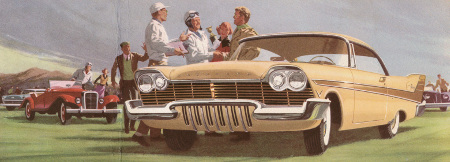
Unfortunately, 1958 was a recession year for the U.S. and all of the automotive manufacturers were feeling the uncertainty of not selling automotive products. In that same year, however, American Motors had performed so well within the sales market that Chrysler wanted to speed up its Valiant development program because compact-size cars were growing in interest and selling very well.
In conclusion, the 1957-58 Plymouth models were great looking designs, but unfortunately serious quality control issues had also occurred causing consumer trust to wane affecting sales. Many early corrosion problems had occurred and as a result many consumers became very unhappy with the 1957 through 1959 Chrysler products. Today, this unfortunately has also contributed to the chapter of Chrysler’s automotive history and past.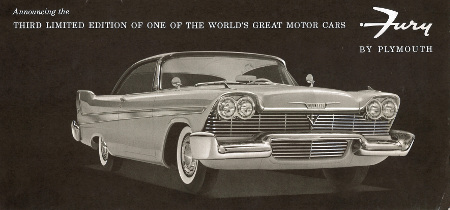
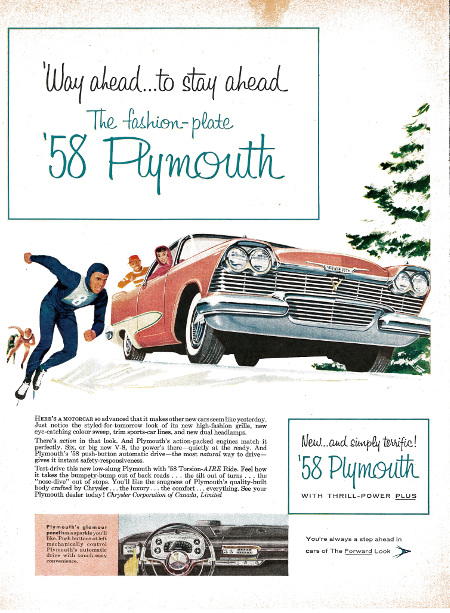
A special thanks to Robert Tate, Automotive Historian and Researcher, for contributing this story to the MotorCities Story of the Week Program. (Bibliography: Butler, Don. “The Plymouth and De Soto story” Crestline Publishing May 1978; Plymouth For 1958, Chrysler Corporation-Engineering Division. 1958.)
For further information on photos please visit http://www.detroitpubliclibrary.org/ or email This email address is being protected from spambots. You need JavaScript enabled to view it. Please do not republish the story and/or photographs without permission of MotorCities National Heritage Area

